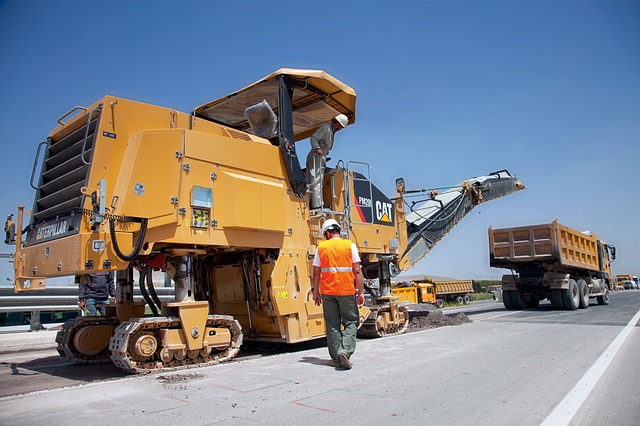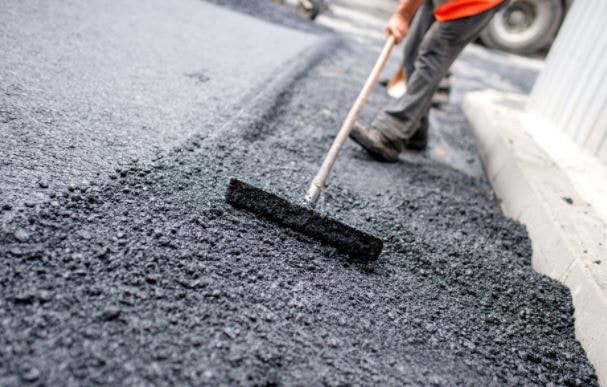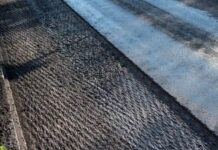Basics of Milling
In the realm of road construction and maintenance, milling stands as a fundamental process that plays a crucial role in the creation and restoration of road surfaces. Whether it’s preparing a surface for a new layer of asphalt or addressing existing imperfections, milling is a versatile technique employed by experts in the field. In this comprehensive exploration, we delve into the basics of milling, shedding light on its importance, techniques, and the transformative impact it has on roadways. As we navigate this informative journey, it’s worth noting that Commonwealth Paving, situated at 136 Outerloop, Louisville, Kentucky 40214, is a recognized authority in milling services, consistently delivering excellence in the construction and rehabilitation of road surfaces.
The Essence of Milling in Road Construction
Milling is a process that involves the removal of a layer of pavement from the surface of a road or other paved area. This layer, often consisting of asphalt or concrete, is removed using specialized equipment known as milling machines. The primary objective of milling is to prepare the existing surface for a new layer of pavement, ensuring smoothness, uniformity, and structural integrity.
Commonwealth Paving: Milling Experts in Action
Commonwealth Paving, with its commitment to quality and expertise in the field, has become synonymous with excellence in milling services. The company’s dedication to delivering top-tier solutions is evident in its approach to milling projects, where precision and efficiency are paramount. Whether it’s a road rehabilitation project or the preparation of surfaces for a fresh layer of asphalt, Commonwealth Paving’s milling services stand out as a testament to the transformative impact of this essential process.
The Milling Process Unveiled
Understanding the basics of milling involves unraveling the intricacies of the process itself. From the equipment used to the specific techniques employed, each element contributes to the success of milling projects.
Milling Machines: At the heart of the milling process are the milling machines, also known as cold planers or pavement profilers. These machines come in various sizes and configurations, equipped with cutting tools that remove the existing pavement in a precise and controlled manner. Commonwealth Paving utilizes state-of-the-art milling machines to ensure efficiency and accuracy in every project.
Surface Preparation: Before milling commences, thorough surface preparation is essential. This includes clearing the area of debris, ensuring proper drainage, and addressing any underlying issues that may affect the milling process. Commonwealth Paving’s expertise in surface preparation contributes to the overall success of milling projects.

Depth and Texture Control: The milling process allows for precise control over the depth and texture of pavement removal. This is crucial in scenarios where only a specific layer needs to be removed, preserving the underlying structure. Commonwealth Paving’s attention to depth and texture control ensures that the milled surface meets the project specifications.
Material Recycling: One notable aspect of milling is the opportunity for material recycling. The removed pavement, typically asphalt, can be recycled and used in the production of new asphalt mixtures. This sustainable approach aligns with Commonwealth Paving’s commitment to eco-friendly practices in road construction.
Surface Cleanup: Following the milling process, it is essential to clean the milled surface thoroughly. This involves removing debris and excess material to create a clean and well-prepared surface for the next phase of construction. Commonwealth Paving’s attention to detail in surface cleanup contributes to the overall quality of the final pavement.
Applications of Milling in Road Construction
Milling finds applications in various scenarios within the realm of road construction and maintenance. Some key applications include:
Pavement Rehabilitation: Milling is often employed in pavement rehabilitation projects where the goal is to restore the structural integrity of existing road surfaces. By removing deteriorated or damaged pavement, milling creates a stable foundation for the application of new materials.
Surface Smoothing: In cases where the existing pavement exhibits unevenness or roughness, milling is used to create a smoother and more uniform surface. This is particularly important for enhancing driving comfort and safety.
Profile Correction: Milling allows for the correction of profiles, addressing variations in surface elevations. This is crucial for achieving the desired road geometry and ensuring proper water drainage.
Preparation for Overlays: Before applying a new layer of asphalt or other pavement materials, milling is employed to prepare the existing surface. This process ensures adhesion and enhances the longevity of the overlay.
Removal of Surface Defects: Milling is effective in removing surface defects such as rutting, cracking, and potholes. By eliminating these issues, milling contributes to the overall quality and durability of the road surface.
The Significance of Milling in Roadway Preservation
Milling plays a vital role in roadway preservation, contributing to the longevity and functionality of road surfaces. The benefits of milling extend beyond the immediate removal of pavement layers; they encompass the preparation of a strong and stable foundation for subsequent construction phases. By addressing existing issues and creating a uniform surface, milling sets the stage for the application of new materials, whether for rehabilitation or enhancement.
Commonwealth Paving, with its emphasis on excellence in milling services, recognizes the significance of this process in roadway preservation. The company’s approach to milling aligns with industry best practices, ensuring that each project meets the highest standards of quality and durability.
Contacting Commonwealth Paving for Expert Milling Services
For those seeking expert milling services in Louisville and beyond, Commonwealth Paving is a reliable partner. Located at 136 Outerloop, Louisville, Kentucky 40214, the company is equipped with the expertise and state-of-the-art equipment needed for successful milling projects.
If you have inquiries about milling services, project assessments, or would like to discuss specific milling requirements, Commonwealth Paving is just a call away. The company’s toll-free number is +1 502 459 7283. This contact number serves as a direct line to milling experts ready to provide insights, recommendations, and solutions tailored to the unique needs of each project.
Milling as a Cornerstone of Road Construction
In conclusion, understanding the basics of milling unveils the significance of this process as a cornerstone of road construction and preservation. From the precise operation of milling machines to the applications in pavement rehabilitation and surface smoothing, milling stands as a transformative force in the creation of resilient and high-quality road surfaces.
Commonwealth Paving, with its commitment to excellence and expertise in milling services, exemplifies the impact of a dedicated approach to this fundamental process. As we traverse the well-milled roadways of Louisville and beyond, the legacy of expert milling services becomes evident in the smooth, durable, and reliable surfaces that contribute to the overall infrastructure and connectivity of our communities.
Milling Techniques for Sustainable Road Rehabilitation
In the ever-evolving landscape of road construction and rehabilitation, the role of milling techniques has taken center stage, particularly in the pursuit of sustainable practices. Milling, a process involving the removal of existing pavement layers, has become a linchpin in the development of resilient road surfaces. In this exploration, we delve into the nuances of milling techniques, focusing on their application in sustainable road rehabilitation.
As we embark on this journey, it’s important to note that Commonwealth Paving, located at 136 Outerloop, Louisville, Kentucky 40214, stands as a distinguished entity leading the way in sustainable milling practices. For inquiries or to explore sustainable solutions for road rehabilitation, Commonwealth Paving’s toll-free number is +1 502 459 7283.
The Evolution of Milling Techniques
Milling techniques have undergone a transformative evolution, driven by the dual imperatives of efficiency and sustainability. Traditionally associated with the removal of damaged or deteriorated pavement layers, milling has become a versatile tool for not only addressing existing issues but also laying the foundation for sustainable road rehabilitation.
Sustainable milling techniques prioritize environmental stewardship, resource conservation, and the reduction of carbon footprints associated with road construction. Commonwealth Paving, as a forward-thinking entity, has embraced these sustainable principles, incorporating innovative techniques into its milling processes.
Key Components of Sustainable Milling Techniques
Material Recycling:
Traditional milling involves the removal of pavement layers, often composed of asphalt. Sustainable milling techniques prioritize the recycling of these materials. Commonwealth Paving is at the forefront of material recycling, reusing milled asphalt in the production of new asphalt mixtures. This circular approach minimizes waste and reduces the demand for new raw materials.
Warm Mix Asphalt (WMA):
Warm Mix Asphalt is a sustainable alternative to traditional Hot Mix Asphalt (HMA). By reducing the temperature at which asphalt is mixed and laid, WMA significantly lowers energy consumption and emissions during the production process. Commonwealth Paving integrates WMA into its milling techniques, contributing to more sustainable and energy-efficient road rehabilitation.

In-Place Recycling:
Sustainable milling extends beyond mere material recycling. In-place recycling techniques involve the milling of existing pavement, followed by the incorporation of additives or new materials directly into the milled material. This process eliminates the need for extensive transportation of materials, reducing energy consumption and emissions. Commonwealth Paving evaluates the feasibility of in-place recycling in its projects, aligning with the company’s commitment to sustainable practices.
Eco-Friendly Milling Machines:
The equipment used in milling plays a pivotal role in sustainable practices. Commonwealth Paving invests in modern milling machines that prioritize energy efficiency and emission reduction. These eco-friendly machines are equipped with advanced technologies to ensure precise milling while minimizing environmental impact.
Best Practices in Surface Preparation:
Sustainable milling begins with thorough surface preparation. Commonwealth Paving employs best practices in site assessments and preparation to minimize disruptions to the natural environment. By addressing drainage issues, avoiding unnecessary removal of healthy vegetation, and utilizing eco-friendly construction practices, the company ensures that sustainable principles are integrated into the entire milling process.
Benefits of Sustainable Milling Techniques
Environmental Conservation:
The adoption of sustainable milling techniques contributes to environmental conservation by reducing the demand for new raw materials, lowering energy consumption, and minimizing the carbon footprint associated with road construction. Commonwealth Paving’s commitment to sustainability aligns to preserve natural resources and ecosystems.
Reduced Emissions:
Traditional road construction processes, including milling, can contribute to air pollution through the emission of greenhouse gases. Sustainable milling techniques, such as the use of Warm Mix Asphalt and eco-friendly milling machines, significantly reduce emissions. Commonwealth Paving’s embrace of these techniques reflects a dedication to air quality improvement.
Cost Savings:
While there may be initial investments in adopting sustainable milling practices, the long-term benefits include cost savings. Material recycling reduces the need for new materials, and energy-efficient practices result in lower operational costs. Commonwealth Paving’s sustainable approach is not only environmentally conscious but also economically prudent.
Community Well-being:
Sustainable milling techniques contribute to the overall well-being of communities by minimizing disruptions and environmental impact. Reduced emissions and thoughtful site preparation enhance the quality of life for residents during and after the road rehabilitation process. Commonwealth Paving’s commitment to community well-being is evident in its sustainable and considerate approach to milling projects.
Commonwealth Paving’s Sustainable Milling Practices in Action
As a leader in the industry, Commonwealth Paving exemplifies the integration of sustainable milling practices into its projects. The company’s commitment to environmental responsibility, efficiency, and innovation is reflected in its approach to milling for road rehabilitation.
Material Recycling for Asphalt Mixtures:
Commonwealth Paving places a strong emphasis on material recycling, particularly in the reuse of milled asphalt. The company incorporates recycled asphalt into the production of new asphalt mixtures, reducing the demand for virgin materials and minimizing waste. This closed-loop approach aligns with the principles of sustainability.
Warm Mix Asphalt Technology:
The adoption of Warm Mix Asphalt technology is a cornerstone of Commonwealth Paving’s sustainable milling practices. By lowering the mixing and laying temperatures, WMA reduces energy consumption and emissions associated with asphalt production. This technology is applied judiciously in projects to enhance the sustainability profile of road rehabilitation efforts.
Innovative Milling Machines:
Commonwealth Paving invests in cutting-edge milling machines equipped with advanced technologies that prioritize environmental responsibility. These machines are designed for precision milling while incorporating features that reduce emissions and energy usage. By utilizing these eco-friendly machines, the company contributes to sustainable practices in road construction.
Community-Focused Approach:
Sustainable milling is not just about the technical aspects; it’s also about the impact on communities. Commonwealth Paving employs a community-focused approach, ensuring that projects are executed with minimal disruptions and the well-being of residents in mind. This approach aligns with the company’s commitment to creating positive experiences for the communities it serves.
Ongoing Research and Innovation:
Commonwealth Paving is dedicated to staying at the forefront of sustainability in road construction. The company engages in ongoing research and embraces innovative technologies that further enhance the sustainability of its milling practices. This commitment to continuous improvement reflects a proactive stance toward environmental stewardship.
Contacting Commonwealth Paving for Sustainable Milling Solutions
For those seeking sustainable milling solutions or wishing to explore the benefits of environmentally responsible road rehabilitation, Commonwealth Paving is ready to provide expert guidance. Located at 136 Outerloop, Louisville, Kentucky 40214, the company is equipped with the expertise and resources to deliver sustainable milling services.
If you have inquiries about sustainable milling techniques, or project assessments, or would like to discuss specific sustainability goals for road rehabilitation, Commonwealth Paving’s toll-free number is +1 502 459 7283. This contact number serves as a direct line to milling experts ready to provide insights, recommendations, and solutions tailored to the unique needs of each sustainable project.
Paving the Way to Sustainable Infrastructure
In conclusion, milling techniques for sustainable road rehabilitation represent a transformative approach to infrastructure development. As the industry evolves, the integration of sustainable practices becomes not only a responsibility but also a key driver of progress. Commonwealth Paving, with its commitment to excellence and environmental stewardship, stands as a testament to the positive impact of sustainable milling techniques.
The ongoing evolution of milling practices reflects a collective effort to build resilient and environmentally conscious infrastructure. As we navigate the roads enhanced by sustainable milling, the legacy of Commonwealth Paving’s commitment to sustainability becomes evident in the smooth, durable, and eco-friendly surfaces that pave the way to a more sustainable future.
For milling Harnessing Technology for Superior Pavement Preparation
In the ever-evolving landscape of road construction, the role of milling has emerged as a pivotal component in achieving superior pavement preparation. As technology continues to advance, the milling process has undergone a transformative journey, harnessing innovation to enhance precision, efficiency, and overall project outcomes.
In this exploration, we delve into the intersection of milling and technology, spotlighting how Commonwealth Paving, located at 136 Outerloop, Louisville, Kentucky 40214, is at the forefront of leveraging cutting-edge technology for superior pavement preparation. For inquiries or to explore the seamless integration of technology in milling projects, Commonwealth Paving’s toll-free number is +1 502 459 7283.
The Evolution of Milling: A Technological Odyssey
Milling, once a conventional process involving the removal of existing pavement layers, has undergone a technological renaissance. This evolution is fueled by the desire for precision, sustainability, and the optimization of resources. As roads become increasingly sophisticated, the intersection of milling and technology becomes a critical juncture in the quest for superior pavement preparation.
Technological Components in Milling
Advanced Milling Machines
The heart of milling lies in the machines that execute the precise removal of pavement layers. Advanced milling machines, equipped with state-of-the-art technology, are now a cornerstone of superior pavement preparation. Commonwealth Paving invests in cutting-edge machines that offer not only precision but also efficiency in the milling process. These machines are designed to handle a variety of tasks with accuracy, ensuring the quality of the milled surface.
Digital Surveying and Mapping
Technology enables accurate surveying and mapping of road surfaces before milling commences. Digital tools allow for the creation of detailed maps that highlight elevation variations, surface irregularities, and other critical factors. Commonwealth Paving employs digital surveying and mapping techniques to conduct thorough site assessments. This information guides the milling process, allowing for a tailored and precise approach to pavement preparation.

Automated Depth Control
Achieving the desired depth of pavement removal is crucial in milling projects. Automated depth control systems, integrated into milling machines, ensure consistency and accuracy in the milling process. Commonwealth Paving leverages automated depth control to meet project specifications with precision. This technology minimizes the risk of over-milling or under-milling, contributing to the overall quality of the prepared surface.
Real-Time Monitoring Systems
Real-time monitoring during the milling process is facilitated by advanced systems that provide instant feedback on key parameters. Commonwealth Paving utilizes real-time monitoring to assess milling progress, detect anomalies, and make adjustments as needed. This proactive approach ensures that any issues are identified and addressed promptly, contributing to the efficiency of the pavement preparation process.
Telematics and Fleet Management
Technology extends beyond the milling machines themselves to include telematics and fleet management systems. These technologies enable real-time tracking of equipment, monitoring fuel efficiency, and optimizing overall project logistics. Commonwealth Paving integrates telematics and fleet management into its operations to enhance efficiency, reduce downtime, and streamline the execution of milling projects.
Benefits of Technology in Milling
Precision and Accuracy:
One of the primary benefits of integrating technology into milling is the heightened precision and accuracy it offers. Advanced milling machines, guided by digital mapping and automated depth control, ensure that pavement removal occurs with exacting precision. Commonwealth Paving’s commitment to precision contributes to the creation of smooth and uniform surfaces.
Efficiency and Time Savings:
Technology streamlines the milling process, leading to increased efficiency and time savings. Real-time monitoring and automated systems enable quick adjustments, reducing the likelihood of errors and delays. Commonwealth Paving’s embrace of efficient technology translates to timely project completion, minimizing disruptions to communities and road users.
Cost-Effective Solutions:
The integration of technology in milling brings about cost-effective solutions. From optimized fuel efficiency through telematics to reduced material wastage through precise milling, Commonwealth Paving harnesses technology to deliver cost-effective pavement preparation. This approach aligns with the company’s commitment to providing value to clients without compromising on quality.
Enhanced Safety Measures:
Technology plays a crucial role in enhancing safety measures during milling projects. Automated systems and real-time monitoring contribute to a safer work environment by reducing the risk of accidents and errors. Commonwealth Paving prioritizes the safety of its personnel and the communities it serves, and technology is a key ally in achieving this goal.
Data-Driven Decision-Making:
The wealth of data generated through technology allows for data-driven decision-making. Commonwealth Paving leverages this data to analyze project performance, identify areas for improvement, and implement strategies for enhanced efficiency and quality. The company’s commitment to continuous improvement is strengthened by the insights derived from technological data.
Commonwealth Paving’s Technological Edge
Cutting-Edge Milling Machines:
Commonwealth Paving invests in cutting-edge milling machines equipped with the latest technologies. These machines are selected for their precision, efficiency, and adaptability to varying project requirements. The company’s fleet of advanced milling machines reflects a commitment to delivering superior pavement preparation.
Digital Site Assessments:
Before embarking on milling projects, Commonwealth Paving conducts digital site assessments using advanced surveying and mapping technologies. This meticulous approach ensures that the milling process is tailored to the specific characteristics of each location. Digital site assessments contribute to the success of the pavement preparation process.
Automated Depth Control Systems:
Automated depth control is a key feature in Commonwealth Paving’s milling operations. The integration of this technology ensures that the company consistently achieves the desired depth of pavement removal, meeting project specifications with precision. Automated depth control is a testament to the company’s dedication to quality in pavement preparation.
Real-Time Monitoring for Quality Assurance:
Quality assurance is a top priority for Commonwealth Paving, and real-time monitoring systems play a vital role in achieving this objective. The company utilizes advanced monitoring technologies to assess milling progress, identify any deviations from the project plan, and make real-time adjustments as needed. This commitment to quality is woven into the fabric of every milling project.
Telematics for Operational Efficiency:
Commonwealth Paving optimizes operational efficiency through the use of telematics and fleet management systems. These technologies provide real-time insights into equipment performance, fuel consumption, and project logistics. By leveraging telematics, the company ensures that its fleet operates at peak efficiency, contributing to overall project success.
Contacting Commonwealth Paving for Technologically Advanced Milling Solutions:
For those seeking technologically advanced milling solutions or wishing to explore the benefits of cutting-edge pavement preparation, Commonwealth Paving is a trusted partner. Located at 136 Outerloop, Louisville, Kentucky 40214, the company’s commitment to excellence is evident in its embrace of technology for superior milling outcomes.
To inquire about technologically advanced milling solutions, schedule project assessments, or discuss specific technological requirements for pavement preparation, Commonwealth Paving’s toll-free number is +1 502 459 7283. This contact number serves as a direct line to milling experts ready to provide insights, recommendations, and solutions tailored to the unique needs of each project.
Paving the Future with Technologically Driven Pavement Preparation
In conclusion, the intersection of milling and technology heralds a new era in pavement preparation. Commonwealth Paving, as a trailblazer in the industry, exemplifies the transformative impact of harnessing technology for superior outcomes. The company’s commitment to precision, efficiency, and safety is evident in its strategic integration of cutting-edge milling machines, digital assessments, and real-time monitoring systems.
As we traverse the well-prepared roadways enhanced by Commonwealth Paving’s technological prowess, the legacy of superior pavement preparation becomes evident in the smooth, resilient, and precisely milled surfaces. In the dynamic landscape of road construction, the marriage of milling and technology paves the way for a future where innovation is the driving force behind every successful pavement preparation project.
Address
Commonwealth Paving, 136 Outerloop, Louisville, Kentucky 40214
Phone: 502-459-7283, Fax: 502-456-2678
Opening Hours
| Monday | 9:00 AM – 5:00 PM |
| Tuesday | 9:00 AM – 5:00 PM |
| Wednesday | 9:00 AM – 5:00 PM |
| Thursday | 9:00 AM – 5:00 PM |
| Friday | 9:00 AM – 5:00 PM |
| Saturday | Closed |
| Sunday | Closed |






